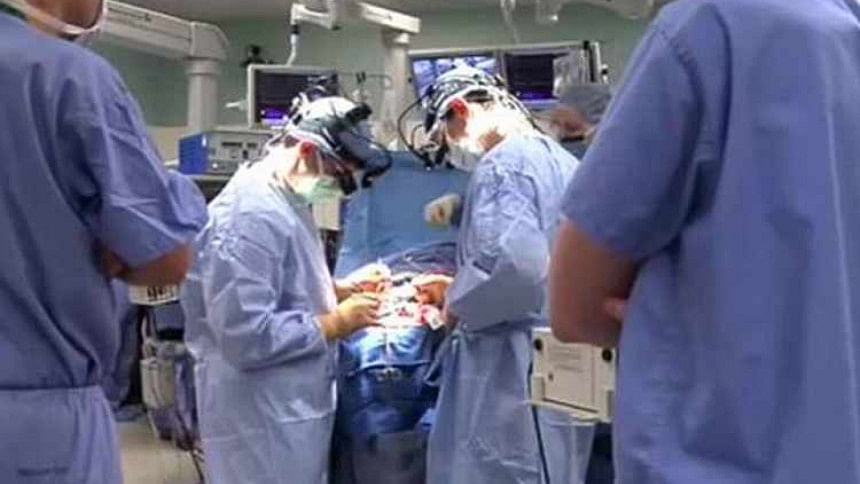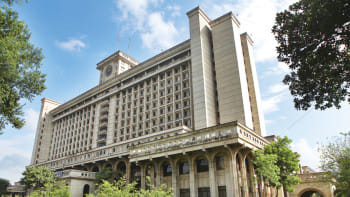Bangladeshi patient sings during brain surgery in UAE

A 50-year-old Bangladeshi surgical patient sang and talked to doctors all through a complicated brain surgery as doctors removed a tennis-ball sized tumour at a hospital in Ajman of UAE, this month.
Dr Ishwar Chandra Premsagar, Consultant (Incharge) — Neurosurgery of Thumbay Hospital, said: "Sayed Khorshed Alam, a Bangladeshi national came to us in July this year complaining of weakness of right lower and upper limbs. He had a focal seizure in August 2017 which lasted for two minutes without losing his consciousness, after which he could not walk without support."
The UAE surgery mirrors another similar "awake" surgery reported by the BBC in India in July in which an Indian musician continued to strum his guitar while on an operating table as surgeons burnt parts of his brain during surgery to correct what is referred to as "musicians dystopia".
An MRI of Alam's brain revealed a large tumour on the left side of his brain which controls movement of the body so Dr Premsagar decided to conduct what's dubbed in medical parlance an "awake brain surgery".
This procedure requires the patient to be alert, awake and cooperative with the medical team during the procedure and doctors ask questions and monitor the activity of the brain to measure his response.
Dr Premsagar said: "Throughout the procedure of removal of the tumour, he was encouraged to talk and move his right hand and leg to ensure that the procedure wasn't causing further weakness or any speech problem. The advantage of this type of surgery is that the surgeons can monitor the progress during the operation. The procedure also reduces the risk of damage to functional areas of your brain that could affect limb movements or speech, because as long as the patient doesn't experience further weakness or inability to speak, the surgeons are reassured that they are on the right track."
Elaborating on the procedure Dr Premsagar said: "The bone of the skull just overlying the tumour was removed by Craniotomy, under local anaesthesia. Then the brain tumour was removed with his active cooperation. It was taken out bit by bit with special machine called CUSA. CUSA removes the tumour silently without affecting the surrounding brain and with minimum bleeding. After total removal of tumour, the bone was fixed back as before."
Soon after the surgery, the patient drank water, and fruit juice a little later. He had a full meal in the evening. He was able to stand up the next morning started and began walking with support, soon after.
Alam who has completely recovered now said: "This is a miracle God has given me. I am grateful to the doctors at Thumbay Hospital Ajman for the treatment. I had given up hopes of being able to walk on my own ever again, before the surgery. Now I am also able to run."

 For all latest news, follow The Daily Star's Google News channel.
For all latest news, follow The Daily Star's Google News channel. 



Comments